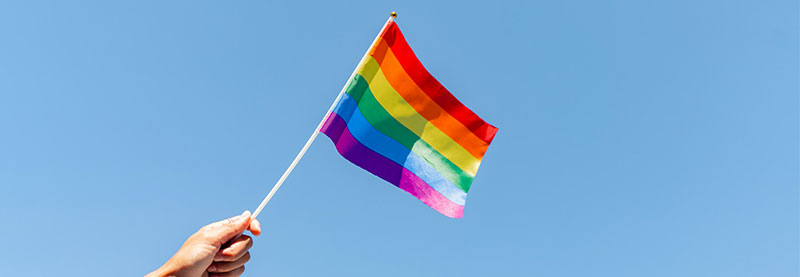Intellectual Property Insights from Fishman Stewart
Mini Article – Volume 24, Issue 10
Share on Social

June is Pride Month
By Kristyn Webb
June is Pride Month. This year we are celebrating with some IP tips for drag performers!
Drag performances involve men dressing in women’s clothing, or women wearing men’s clothing, often with exaggerated feminine or masculine features. The art of drag may be traced back to the days of William Shakespeare, when all roles, including those of female characters, were played onstage by men. In the US, drag performances can be traced back to 1896, when the Hamilton Lodge in Harlem, New York, began hosting its annual cross-dressing ball. Today, drag performances have become highly popular and have gained mainstream attention through popular shows such as RuPaul’s Drag Race.
Drag performers can protect their intellectual property by registering the copyrights in their original works of music, choreography, and comedy sketches. Performers also may seek to register their stage names as trademarks, as the famous Nina West did for music recordings and live performances, among other goods and services.
However, drag performers may face complications in protecting their intellectual property. Many aspects of drag performances are built on prior works, such as cover songs and parody songs. The performance of cover songs may be permitted by a venue’s public performance license. Parody songs may be a bit trickier, as the line between non-infringing parody and an unauthorized derivative work may be blurry at times. In addition, obtaining trademark registration for a stage name may pose issues as well because drag performers occasionally draw on and satirize existing third-party brands.
For example, when Nina West sought registration of her name NINA WEST as a trademark for tote bags, shirts, and jewelry pins, her application was opposed by the fashion brand ABG-Nine West on the basis that consumers would likely be confused with its NINE WEST brand for clothing and fashion accessories. Ultimately, Nina West deleted the disputed goods from her application, ABG-Nine West withdrew its opposition, and the USPTO registered the NINA WEST mark.
Drag performances test the limits of freedom of expression, fashion, and occasionally, intellectual property law. They are an important part of LGBTQ+ culture and American culture.
For readers in the Detroit area, tickets are still available for Catfight for the Crown, on June 14, 2024. In its fifth year, this event is an drag-style amateur beauty pageant with proceeds going to support the Ruth Ellis Center which services the needs of unhoused and at-risk LGBTQ+ youth.
Kristyn Webb is the Group Leader of Fishman Stewart’s Copyright Practice Group, and holds a Master’s Degree in Copyright Law from King’s College London.



Published May 31, 2024
Related Content from Fishman Stewart
People have long pondered whether or not the Giza pyramids were indeed solely burial chambers, which was the only known, and archaeologically determined, use—until now.
By 1930, efforts began in New York to replace Mother's Day with Parent's Day because men were more than just breadwinners. Those efforts didn't catch on, probably because in that era, women often spent more time in the home.
In February, Nike and Skims announced that they will be working together on a new brand, NikeSkims. The co-brand will create a new line of training apparel, footwear, and accessories specifically designed to meet the unique needs of women athletes.
Generally, federal courts have exclusive jurisdiction over copyright cases, and often, this presents an insurmountable paywall for individual artists and small businesses to vindicate their rights, especially where the value of the individual copyrighted works are relatively low.
Dedicated to raising public awareness about the importance of encouraging innovation and creativity throughout the world, the World Intellectual Property Organization (WIPO) annually observes World Intellectual Property Day on April 26 to showcase the role that patents, trademarks, industrial designs, copyrights and trade secrets play in our everyday lives.
Hold onto your foam fingers, sports fans – college sports just got a whole lot more interesting! The latest updates to Name, Image, and Likeness (NIL) rules are making student-athletes bigger than ever, and it’s not just about the game anymore.
Did a federal court in Louisiana recently decide that US copyrights are global rights? It seems so.
One of his most famous songs, “Lose Yourself” was recently at the center of a lawsuit. In 2019, Eminem’s publishing company Eight Mile Style sued Spotify claiming that Spotify streamed a number of its musical compositions without proper licenses.
One of the most common challenges is whether AI should be free to train on data that is protected by copyright and owned by third parties without first obtaining permission.
The U.S. Copyright Office (USCO) recently published its latest report on AI and “copyrightability.” In short, the USCO considers only some AI-generated works to be sufficiently creative as to deserve copyright protection, and thus, registration.
IDENTIFYING, SECURING AND ADVANCING CREATIVITY®












